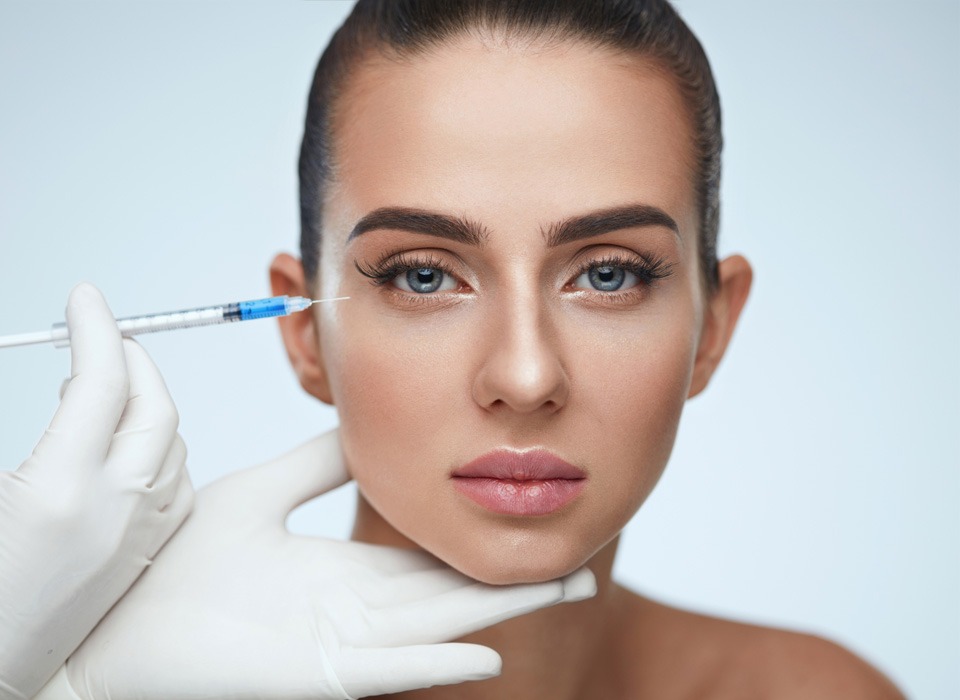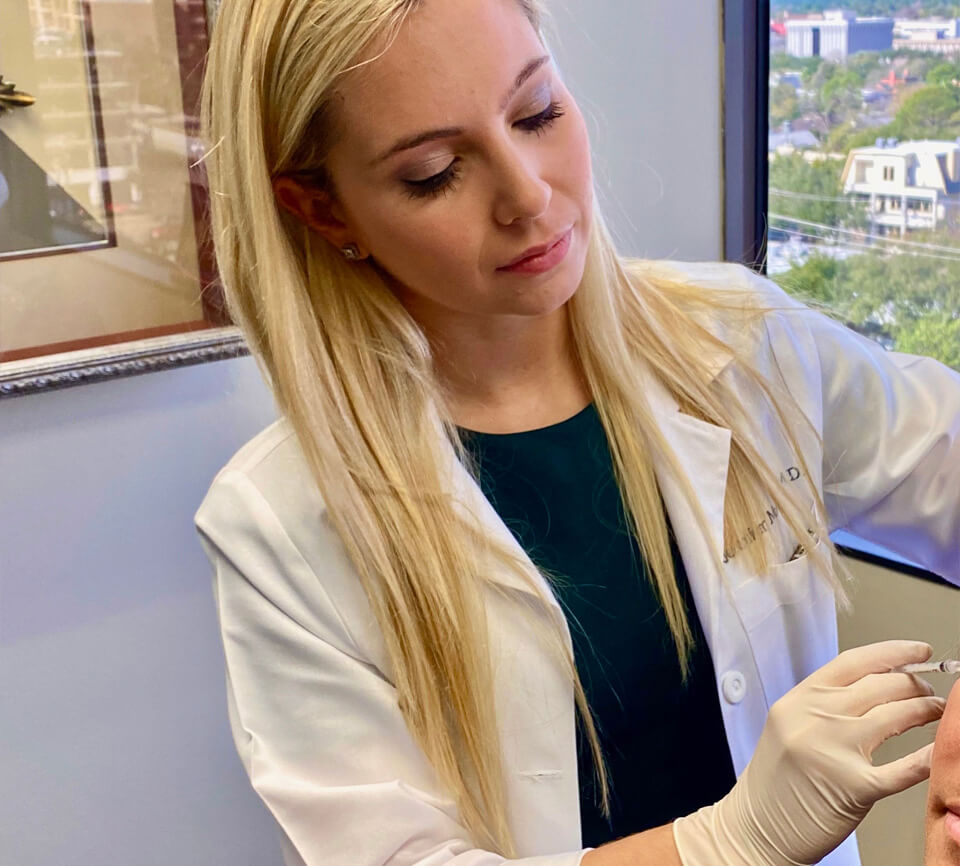Skin Care and Anti-aging




Cleanser: Washing your face twice a day is the essential foundation for your skin care routing, and this can be tailored specifically to your skin type. Gentle cleansers (Alastin Gentle Cleanser, Alastin Cream Cleanser) are great for sensitive skin. Oil-based cleansers (Cosmedix Purity Solution) can prevent dehydration of the skin. Exfoliants in the next step can be combined with cleansers to promote cell turnover and remove dead skin cells.
Exfoliation: Mandelic acid, alpha-hydroxy acid, and glycolic acid can help to even skin tone, treat acne, and rejuvenate the superficial layers of the skin.
Serums and Treatments: Different peptides, stem-cell derived components, plant extracts, and acid components can treat a variety of skin conditions. Hyaluronic acid serum can improve hydration by promoting moisture retention. Alastin HA Immerse serum is one of Dr. Murdock’s favorite skin care staples. Hyperpigmentation, sun spots, and age spots can be treated with products that include tranexamic acid, lactoferrin, hydroquinone, and kojic acid (Cosmedix Simply Brilliant, Alastin Aluminate).
Antioxidants: These ingredients are key components to bind and neutralize free radicals, decreasing oxidizing stress and damage. Vitamin C can increase the effectiveness of sunscreen, repair UV damage, and brighten skin (Alastin C-radical defense, Cosmedix Serum 16 and Serum 24). Vitamin E works to enhance the effects of Vitamin C and also has moisturizing properties. Niacinamide (Vitamin B3) improve’s the skin’s barrier function, improves acne by decreasing sebum production, and evens skin tone. Astaxanthin is one of the most potent antioxidants with anti-inflammatory effects. Co-Enzyme Q10 improves the skin’s ability to repair and regenerate cells.
Moisturizer: Restoring hydration decreased wrinkles and improves skin firmness. Some products have peptides and emollients (squalene) that improve skin barrier function and diminish wrinkles
Sunscreen: This daily skin care product is the most important step in the morning routine. Protecting the skin from both UVA and UVB can not only protect the skin from aging changes but also decrease the risk of skin cancer. Zinc oxide can be found in many different products that can be great for daily use (Cosmedix Hydrate+), tinted to give a glowing appearance (Alastin Hydratint, Colorescience Flex Shield), or formulated into a powder for easy application (Colorescience Brush-on Shield)
Eye Cream: As an oculofacial plastic surgeon, Dr. Murdock pays particular attention to the area around the eyes. Dark circles, fine lines, Crow’s feet, and under eye bags can be improved by different eye creams (Cosmedix OptiCrystal or Eye Doctor). Any product with SPF is an added bonus! (Colorescience Total Eye 3-in-1)
12750 NW 17th St, #226
Miami, FL 33182
601 N Federal Hwy, Suite 411
Hallandale Beach, FL 33009
Call: 305-315-5577
